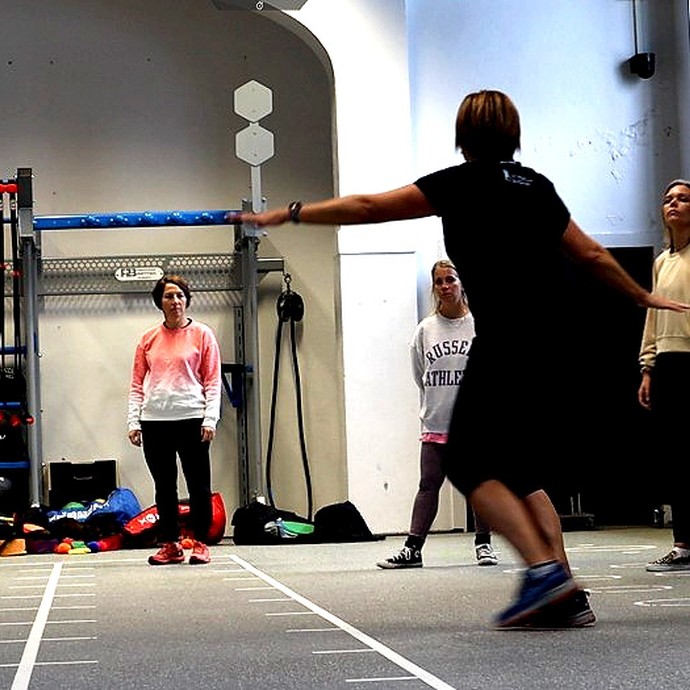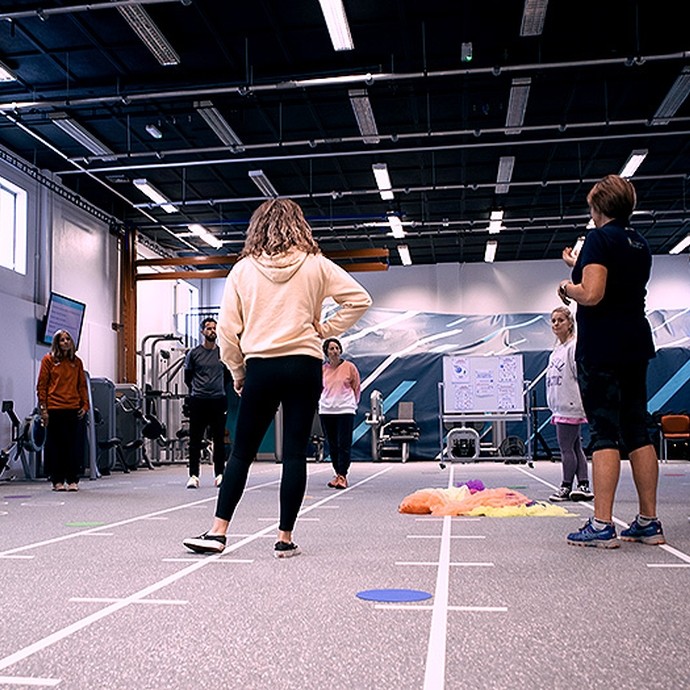Successful Kinaesthetic Instruction for Pre-schoolers (SKIP-Cymru©)
In Wales the play-based curriculum means children have lots of opportunities for moving in their learning. However, children don’t just magically learn all the skills they need just by playing. There are some skills that need to be taught, and these skills are also the ones that are needed to play many of the games and sports which support an active healthy lifestyle.
We know from many years of research that if very young children move a lot they will be better movers. But as they get a little older, start to develop balance and begin to move independently they need to be taught how to move well. If we teach children to move well they develop the confidence and motivation to lay the foundations for a life of physical activity and better physical and mental health. Our work here at UWTSD focuses on developing children’s motor skills and is based on over 30 years of research in the field.
Our SKIP Cymru professional development programme has gained national recognition as a recommendation in the Welsh Government Health and Social Care and Sport Committee report on Physical Activity of Children and Young People. The SKIP-Cymru work has also been highlighted as a case study for the Journey to a Healthier Wales support materials for the Well-being of Future Generations Act. This work has gained international recognition with Dr Wainwright delivering key note lectures at the International Physical Literacy conference in Toronto and Changing the Game conference in Sweden. Published research evidence shows the rationale for the development of SKIP-Cymru and also evidence of the impact of this work in Wales
SKIP-Cymru trains adults to analyse children’s movement and then how to teach children the foundational skills they need to be competent movers and so access a range of physical activity. By recognising the developmental stage a child is at when they are learning to throw and catch, practitioners can use the appropriate equipment and tasks to ensure children progress and develop their skills in a playful fun way.
Key Links
We aim to lay the foundations of physical activity, health, well-being, and academic outcomes in early childhood. Learn more about the evidence-based training available for people who work with children.

All of our research is applied to practice. You can read how our research impacts outcomes for young children, parents, older adults and patients, and improves health and wellbeing in our communities.

We research and work on co-operative projects concerning physical literacy. Our active, engaged team of academic researchers and project leaders collaborate with people of all ages and backgrounds. Learn more about what we do.

